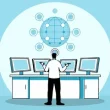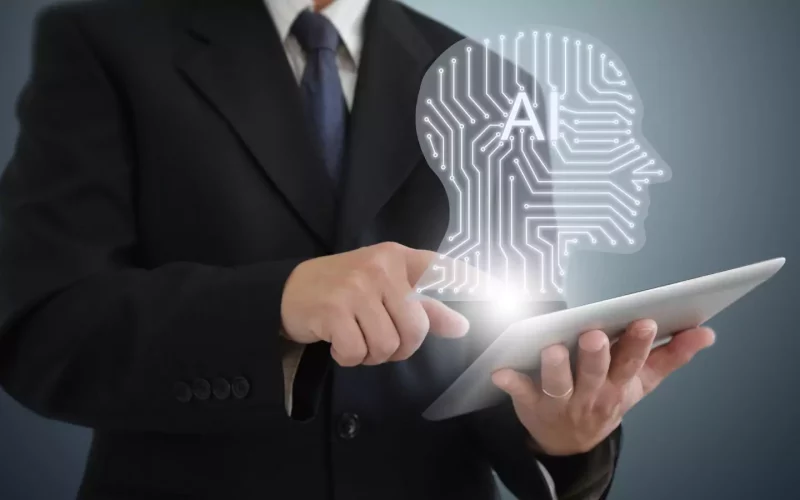In a world moving rapidly toward the AI Singularity, students across the globe are asking the same question: The Coming AI Singularity: Should Students Be Worried About Job Security? With advancements in machine learning, robotics, and automation, the very nature of work is undergoing a seismic transformation. For students preparing to enter the workforce, this transformation raises urgent concerns—and unique opportunities.
What Is the AI Singularity?
The AI Singularity refers to a hypothetical point where artificial intelligence surpasses human intelligence in a way that becomes uncontrollable or irreversible. At this point, machines could independently improve themselves, potentially rendering vast sectors of human labor obsolete. While the timeline for the Singularity is still debated—some predict it by 2045, others see it as centuries away—the trajectory of AI progress suggests that significant disruptions will occur well before we ever reach such an event.
The Threat to Traditional Jobs
For students pursuing degrees in areas like accounting, logistics, or even journalism, automation already looms large. Tools like ChatGPT can now write reports, answer complex questions, and summarize data—tasks that once required human input. Robotics is taking over roles in manufacturing and even in some areas of healthcare and customer service. If machines can do it faster, cheaper, and more reliably, what happens to the humans doing those jobs?
The reality is stark: entry-level and repetitive roles are at the highest risk of automation. According to a 2023 McKinsey report, up to 30% of work activities could be automated by 2030, affecting jobs in data processing, administrative support, and routine analysis. The Coming AI Singularity: Should Students Be Worried About Job Security? The answer leans toward “yes”—but with a crucial caveat.
The Flip Side: New Jobs and Industries
While AI threatens certain job categories, it is also a powerful engine for new kinds of employment. Historically, every major technological revolution—from the steam engine to the internet—has created more jobs than it destroyed, though not without a painful transition period. AI is no different.
Emerging fields like AI ethics, prompt engineering, data labeling, and human-AI interaction design are already opening doors. Roles that require empathy, creativity, or complex decision-making—such as therapists, strategists, artists, and entrepreneurs—are not just surviving but thriving. In fact, the World Economic Forum projects that AI will create 97 million new jobs globally by 2025.
Future-Proof Skills for the AI Age
So, how can students adapt? The key lies in cultivating future-proof skills—those that machines struggle to replicate. These include:
- Critical thinking and problem-solving
- Emotional intelligence and communication
- Adaptability and lifelong learning
- Tech literacy and digital fluency
- Creativity and innovation
Students should also consider double majors or interdisciplinary learning. Pairing computer science with psychology, for example, can open up paths in user experience design or behavioral AI development. Liberal arts students can add value with unique perspectives on human behavior, ethics, and society—areas where AI still has significant blind spots.
The Role of Education and Institutions
Education systems must evolve. Universities and colleges can’t continue producing graduates trained for 20th-century jobs. They must integrate AI-focused curricula, foster entrepreneurial thinking, and prioritize experiential learning. Internships, hackathons, and real-world problem-solving can prepare students for the uncertain, AI-shaped economy ahead.
Moreover, institutions should work with industry leaders to forecast future talent needs and align educational outcomes with emerging roles. This is no longer optional—it’s essential.
Embracing AI as a Career Ally
Rather than seeing AI as a threat, students should start viewing it as a tool—and even a partner—in their careers. Knowing how to use AI tools for research, productivity, and creativity can provide a competitive edge. Learning how algorithms work can empower students to innovate and lead in this new frontier.
Some of today’s fastest-growing careers—like prompt engineers or AI trainers—didn’t exist five years ago. In a similar vein, the jobs of 2035 may be unimaginable today. Students who develop the right mindset—resilient, curious, and adaptable—will be the ones best equipped to shape that future.
Final Thoughts: Should Students Be Worried?
The Coming AI Singularity: Should Students Be Worried About Job Security? The answer isn’t a simple yes or no. It’s more accurate to say: students should be aware and prepared. AI will eliminate certain jobs, but it will also give rise to new ones—roles that are more fulfilling, creative, and human-centered.
In the end, those who choose to evolve alongside technology—rather than resist it—will not only secure their careers but help lead society into a better, more intelligent future.
Conclusion
As students prepare for a world shaped by AI singularity, they face both worries and opportunities. While routine tasks may shift to machines, human traits like creativity, empathy, and critical thinking will remain in high demand. By learning AI basics, staying adaptable, and focusing on roles that blend technology with a human touch, students can secure rewarding careers. History shows that every major shift in work creates fresh paths for those ready to learn. With the right skills and mindset, students can thrive in the AI era rather than fear it. Stay curious, keep growing, and let AI be your partner in building a bright future.
Read Also : https://blog.smsvaranasi.com/












